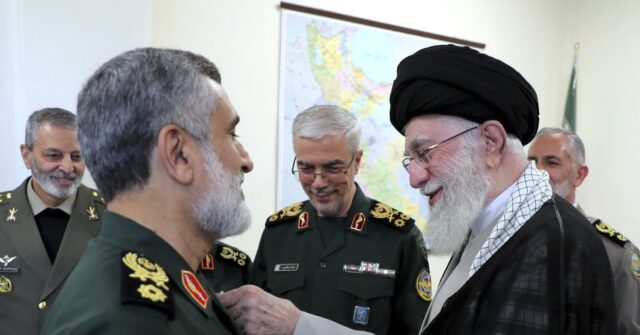Iran is currently on high alert following its second significant ballistic missile strike against Israel, raising suspicions about a potential Israeli counterstrike. In the wake of the recent attack, which involved the launch of 200 missiles—though with limited impact—Ayatollah Ali Khamenei honored General Amir Ali Hajizadeh of the Iranian Revolutionary Guard Corps (IRGC). This recognition reflects the regime’s focus on military capabilities, as the U.S. has designated the IRGC a terrorist entity due to its aggressive activities. Amid this escalating tension, the U.S. has prepared for possible coordinated actions with Israel, as indicated by General Michael Kurilla’s meetings with Israeli counterparts, further heightening the atmosphere of impending conflict.
In a preemptive move, Iran has shut down its airspace in the western region, affecting civilian air travel and indicating preparation for an Israeli air assault. This decision follows a pattern of erratic directives from President Biden concerning U.S. support for Israeli operations. His mixed messaging has included calls for restraint on striking Iran’s nuclear facilities, coupled with encouragement to target its oil and gas infrastructure. Nevertheless, Iranian oil tankers are reportedly retreating from vulnerable areas, reflecting a general sense of anxiety over potential Israeli strikes.
Israel’s responses to past Iranian missile attacks have been significant, with a strong defensive performance seen in previous skirmishes where the majority of missiles were intercepted. However, the recent attacks have breached this defensive wall, demonstrating that Tehran is not only refining its missile capabilities but potentially preparing to future armament with advanced weaponry, including nuclear technology. The possibility of Israel launching its own offensive strikes to dismantle Iran’s missile capabilities and nuclear ambitions looms large, as the state remains committed to neutralizing threats to its national security.
Moreover, Israel’s strategy may encompass broader targets beyond missiles and nuclear facilities, potentially aiming at destabilizing the Iranian regime itself. Prime Minister Netanyahu’s recent communications indicate a desire to resonate with the Iranian populace against oppressive governmental structures. Intelligence reports suggest that Israel may leverage its network of operatives within Iran for sabotage operations, further complicating the situation. Unconventional military approaches, such as submarine attacks or operations from undisclosed lands, could arise, highlighting the unpredictable nature of this conflict.
Amid the mounting hostilities, the Iranian public is experiencing a palpable sense of anxiety, as seen by long lines at gas stations in anticipation of possible retribution from Israel. Additionally, the absence of Esmayeel Qaani, the successor to Qasem Soleimani in Iran’s elite Quds Force, adds to the uncertainty surrounding Iran’s military leadership during this turbulent period. His lack of visibility raises concerns regarding coordination within Iran’s military infrastructure, particularly as Israeli airstrikes are taking their toll on Hezbollah leadership in Lebanon.
Despite Iran’s display of confidence, analysis suggests that their capability to withstand a robust Israeli assault is limited. Previous assaults demonstrated Israel’s ability to bypass Iranian air defenses with relative ease, confirming concerns about Iran’s deterrent capabilities. Amidst retaliatory threats from Iranian leadership, it appears that any Israeli response may be strategically designed to minimize Iranian ability to retaliate, thereby altering the dynamics of the ongoing conflict. The stage is now set for potential escalation, as both nations prepare for a decisive military confrontation, reflecting a decade-long struggle for regional dominance.

